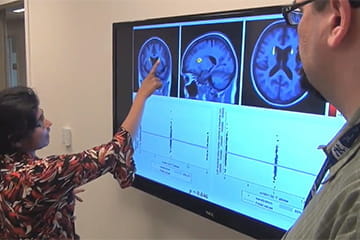Traumatic Brain Injury, or TBI, is damage to the brain that can result from violent impact to a person’s head, such as a sudden blow. When an individual encounters such a force, the brain collides with the inside of the skull, potentially causing bruising and deformation of the brain’s surface. The movement of the brain in the skull may result in the stretching or tearing of the brain’s axons, resulting in interrupted neuron communication and reduced brain function.
TBI symptoms range from mild to severe, typically depending on force of the impact and extent of the damage. In cases of mild traumatic brain injury, or concussion, a person may not lose consciousness, or may lose consciousness only for a few seconds or minutes. In the most serious cases, TBI can result in death. Typical symptoms range from short term dizziness and confusion to chronic memory loss and cognitive disability.


